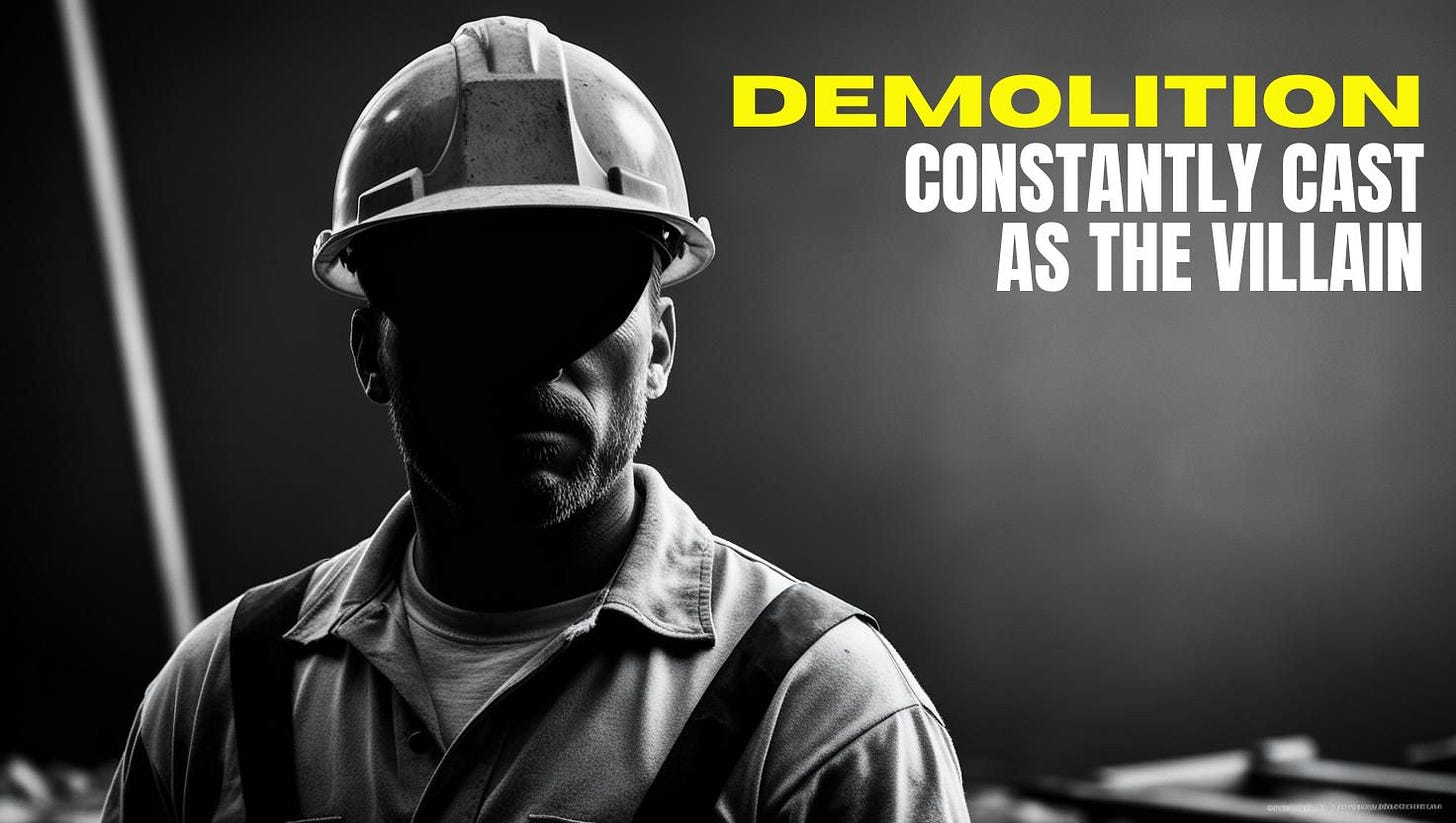Constantly cast as the villain
Demolition has been cast as the villain. And no-one is doing a damn thing about it.
To those working within the field of demolition, their industry is highly professional. Their every move is governed by multiple layers of regulation and legislation; there is a training course for everything and a competence card to match. There is a clearly defined hierarchy and everyone knows their role. And even though no two demolition projects are the same, each contract is carried out with rehearsed and choreographed precision.
That, however, is not the wider perception.
The public, for example, still firmly believes that Fred Dibnah was the last word in demolition technology; that demolition contractors are forever blowing stuff up; and that they regularly pitch up and demolish a much-loved and historic building just because they had nothing better to do.
The perception among those in the neighbouring construction sector is not much better. In some instances, it is worse.
Those in construction see themselves as the elite and those in demolition as knuckle-dragging halfwits; not as partners but as a necessary evil to be endured on the path to the building of their shiny new structure.
Through its silence, the demolition industry has allowed itself to be cast in the role of villain. It has allowed others to present a false narrative that is not representative of the demolition industry of today.
Of course, the industry hasn’t always helped itself in that regard.
It is hard to claim that demolition is not a hazardous environment in which to work while it continues to experience site injuries and fatalities. But the demolition sector has enacted way more health and safety controls than its cousins in construction. And while a single death or injury in the workplace is one too many, the demolition industry hurts and kills fewer people taking buildings down than construction does putting them up.
Some may point to the £60 million in fines handed down to 10 demolition contractors and suggest that the sector walks a fine line on legality. But various parts of the construction sector went down the same path with the Competition and Markets Authority, and they too were found wanting. Indeed, a number of major UK house builders are currently feeling the hot breath of the CMA on their necks as we speak. If they are found guilty, it will make the £60 million in demolition fines look like chump change.
Two wrongs don’t make a right. But before construction points accusing fingers at demolition, perhaps it should first get its own house in order.
Similarly, when architects, developers, politicians and environmentalists hold forth on the subject of sustainability, they would have you believe that demolition contractors were spewing embodied carbon into the atmosphere and chucking millions of tonnes of valuable resources into a landfill. Nothing could be further from the truth. There is no industry that is better at recycling and reuse. As someone said to me just yesterday, if a demolition contractor could harvest and resell the wallpaper, they would. Meanwhile, the construction sector is profligate, wasting materials and resources at a rate that would make your head spin.
The problem is that, as an industry, demolition has surrendered the narrative. It is allowing others to write its story and to speak its truth. Whether it is an industrial accident, collusion or the questioning of its environmental credentials, the demolition industry’s lack of response has been deafening.
It has failed and continues to fail to counter criticism. It has failed to fight its corner. And, in the case of the bid rigging and collusion, the industry’s silence has effectively tainted the reputation of the many with the actions of the few.
If ever there was an industry in need of a PR makeover, demolition is surely it. It has so many positive stories to tell; but no-one is telling them.
The silence isn’t working. Demolition has been cast as the villain. And no-one is doing a damn thing about it.
The world’s biggest event dedicated to the decommissioning and demolition of fossil fuel plants is now just a couple of months away and spaces are selling out fast.
HOWEVER, we have secured a 25% discount for anyone that books a place between now and 20 February. To secure that discount, please CLICK HERE and use the discount code: MARK25






